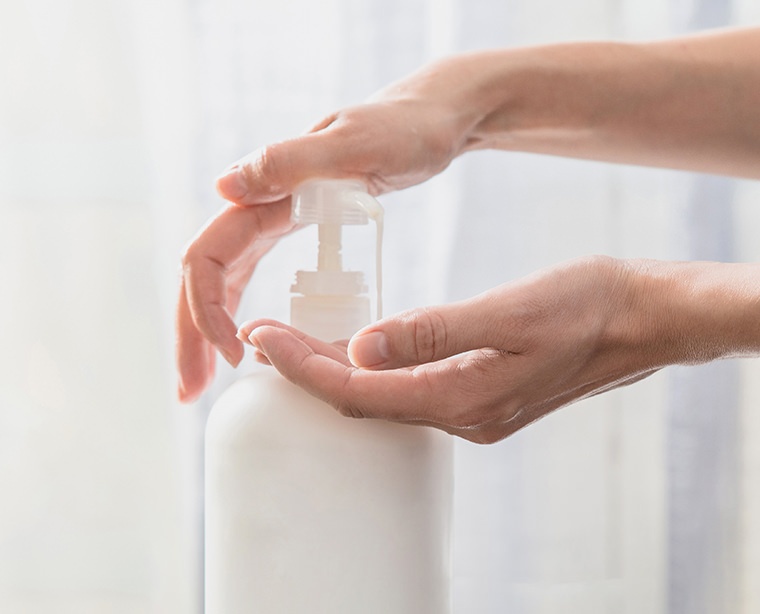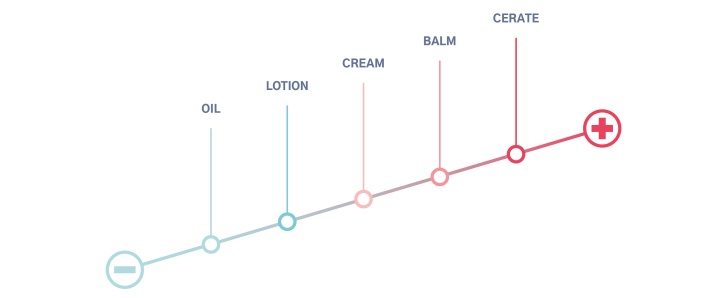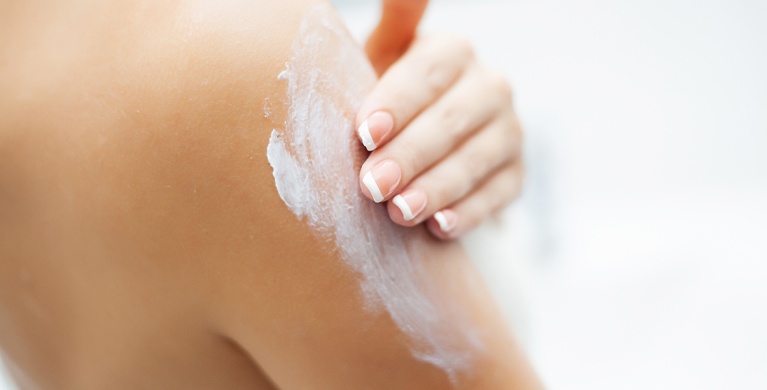

Hydrate your skin to prevent flare-ups

Ask anyone with atopic eczema: after a flare-up, you’re always hoping for more time before the next one. Another flare-up is almost inevitable, but it can be delayed with the help of emollient creams.
Daily hydration is crucial
When you have eczema, you must find some time every day to nourish your skin: nourished skin is both softer and more protected.
With good hydration:
- The skin’s barrier function is restored.
- Scratching and irritation are reduced.
- Risk of superinfection is diminished.
Many treatments fail not as a result of ineffective products but because of poor daily follow-through. Make a pleasant little ritual out of it, a moment for yourself. This will help you maintain treatment over the long term. Try adding it to your routine before or after brushing your teeth, so you never miss a treatment!
Skin that is stronger against eczema
When your skin is hydrated, you usually feel a sense of comfort and less tightness. But emollient cream provides more than just comfort. It helps to rebuild the skin, offering benefits that, although invisible to the naked eye, are critical in the fight against eczema.
Atopic skin is fragile skin and is often very dry and vulnerable to external aggressions. It is unable to fulfill its barrier function correctly. Like a mason, emollient cream repairs any breaches and helps rebuild. Repaired, the skin is better equipped to fend off the next flare-up for longer!
Which cream should you use?
Several emollients are available in a range of textures with varying degrees of richness. Your doctor or pharmacist will help you choose the best product for you, depending on how dry your skin is and on the comfort it provides:
Emollients’ nourishing power

The best emollient to use is the one that feels best on your skin, or on your child's skin! It is best to use fragrance-free emollients. Organic is no guarantee of tolerance, as these products often contain essential oils, which are not recommended for eczema.
When eczema also affects the scalp, you must keep it hydrated just like you would any other area of the body. Three times a week, let it sit for three hours under a towel, then wash the hair.
Apply your emollient properly
We recommend applying your cream after you shower, as it spreads more easily on slightly damp skin. Once or twice a day, depending on your doctor’s instructions, take the time needed to follow each step in the hydration process.

